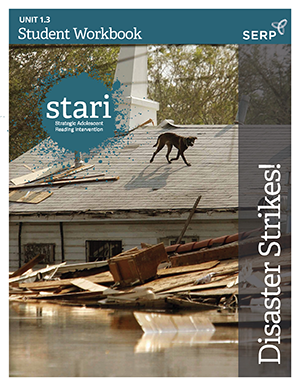Unit 1.3 Disaster Strikes!
Readings on different kinds of natural disasters introduce a focus on the devastating effects of Hurricane Katrina in New Orleans. The accessible but sophisticated novel Ninth Ward offers multiple perspectives on tragic events. Students focus on text-based inferencing with the novel and with related nonfiction. A debate on who was responsible for the Katrina disaster requires complex perspective-taking and pulls together students’ experience reading varied informational and imaginative genres.
LITERATURE
Ninth Ward (Rhodes) – Novel with magical realist elements describing a New Orleans family surviving the Hurricane Katrina disaster
Hurricane Katrina – True Books (Benoit) – Illustrated nonfiction account of Hurricane Katrina’s path of destruction across the Gulf Coast
FLUENCY TOPICS
Hurricane Sandy, preparedness for natural disasters, New Orleans ghosts, voodoo, food traditions of New Orleans, New Orleans architecture, musical heritage of New Orleans
FOCUS
Literary analysis
- Interrelation of character, plot, setting
- Tracking the development of plot across a novel, focusing on problem/resolution
- Foreshadowing and flashback
- Introducing and commenting on textual evidence
Reading comprehension
- Summarizing, clarifying, predicting, and questioning as components of Reciprocal Teaching
- Question-answer relationships (QAR): contrasts between “right there,” “think and search,” “author and me,” and “on my own” questions
- Note-taking from informational texts
Decoding
- Time, negation, and direction prefixes
- Greek and Latin roots
- Noun and verb suffixes
Debate
- Who was responsible for the Katrina disaster: the mayor, the federal
- government, or the citizens of New Orleans?
- Choose a debate on the novel !e Ninth Ward: Which symbol best represents Lanesha? OR What gives Lanesha strength?
